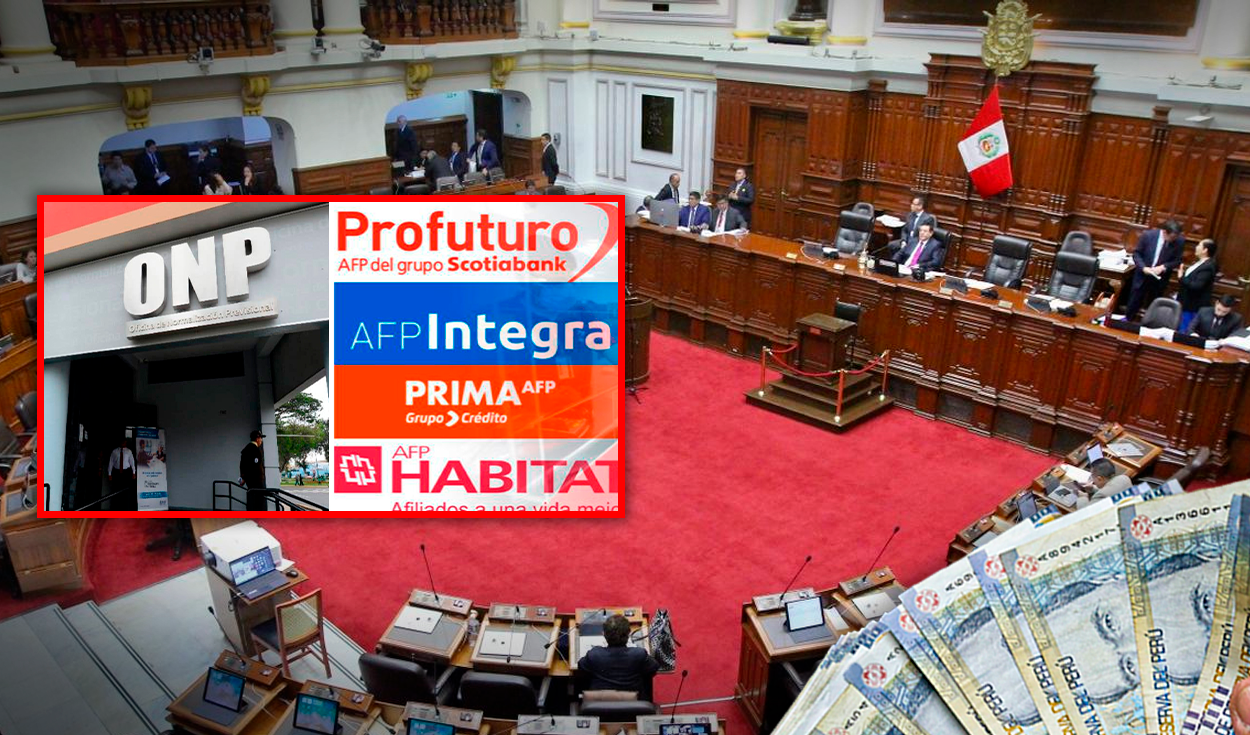
The Congress of the Republic closed its legislature this Saturday, June 15, corresponding to the 2023-2024 period. One of the agenda items that the Plenary Session did not address in its last ordinary sessions this month were the two requests for reconsideration to annul the irregular second vote that approved the pension reform promoted by Fuerza Popular.
Let us remember that only 38 parliamentarians supported the opinion of the Economy Commission chaired by César Revilla. Given this controversial decision, which was made amidst cries and complaints against the management of the Board of Directors, the rule was suspended and its fate could be resolved by the Permanent Commission or in the next legislature.
Pension reform on hold: what will happen to the opinion approved irregularly?
Last Thursday, June 6, the Plenary Session of Congress decided to approve by a ridiculous majority the opinion of the law to modernize the Peruvian pension system. In total, there were 38 votes in favor, 10 against and 16 abstentions, which validated for the second time this norm that seeks to expand the coverage of the pension system and that could transfer around S/1,830 million of resources to the AFPs.
This decision generated a protest from various parliamentarians located in the Chamber due to the irregular management of the Board of Directors chaired by Arturo Alegría, who a few days ago was saved from being censured. And the second vote that endorsed the pension reform had less support from legislators who registered their attendance.
Furthermore, as reported by various congressmen such as Jaime Quito or Sigrid Bazán on their social networks, it was decided to annul the vote on the previous question so that it would return to committees arbitrarily and it was repeated when it had already been approved, without any reconsideration being presented. and excluding a large number of parliamentarians.
Given these irregularities, parliamentarians Germán Tacuri of the Magisterial Bloc and Elizabeth Taipe of Perú Libre made two requests for the second vote to be annulled and the proposal for a comprehensive reform of the pension system to be debated again. Both support their reconsiderations based on article 58 of the Congressional Regulations.
“The effective time limit for the presentation of written reconsiderations of the adopted agreements is the execution of the agreement itself,” the aforementioned article states. In that sense, Tacuri and Taipe maintain that although it is true that the reconsiderations are presented after the approval of the waiver of the minutes to carry out the agreements, it has not yet been executed accordingly.
For this week, the two requests were scheduled in the plenary sessions, but neither of them was put up for debate. The only thing that the Plenary of Congress managed to decide in this regard is the granting of powers to legislate to the Permanent Commission until July 19. Thus, This body made up of 26 parliamentarians could address the two reconsiderations of the vote that approved the pension reform, or failing that, it would be debated in the next legislature that begins at the end of July.
What changes does the Fujimori pension reform intend to implement?
The opinion proposed by the Economy Commission chaired by César Revilla proposes a pension system based on four pillars for raising funds. contributory, non-contributory, semi-contributory and voluntary. This bill, approved in the second instance with only 38 votes, includes a consumption pension that allocates 1% of the value of annual purchases to an individual account managed by one of the AFPs.
In addition, it will allow new contributors to access a minimum pension of S/600 and establishes that independent workers will have to make mandatory contributions gradually starting on January 1 of the third year after the rule comes into force. Finally, the ruling seeks to raise the early retirement age from 50 to 55 years and establishes a limitation on the availability of resources from individual capitalization accounts (CIC) for people under 40 years of age.
It is worth mentioning that this legislative proposal also includes a measure that prevents AFP members from making an eighth withdrawal, in the event that Congress promotes an initiative in this regard.
Source: Larepublica
Alia is a professional author and journalist, working at 247 news agency. She writes on various topics from economy news to general interest pieces, providing readers with relevant and informative content. With years of experience, she brings a unique perspective and in-depth analysis to her work.












